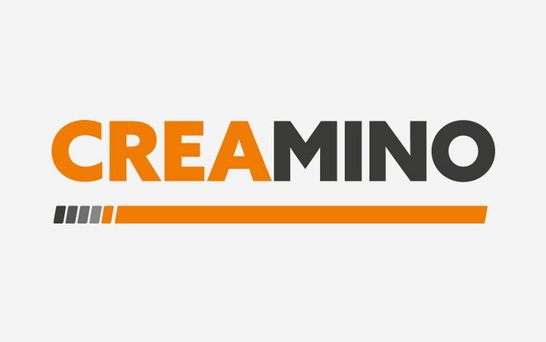Watt - Creatine: The missing link in animal nutrition april 2019
by Dr. John Thomson, Sales Manager US, AlzChem LLC and Dr. Ulrike Braun, Product Manager, AlzChem Trostberg GmbH
Reduced animal proteins and “All Vegi” Feeds – are we missing something?
We are feeding less animal protein to broilers and turkeys today compared to 10 years ago. Animal proteins were banned for a time from livestock feeds in Europe due to concerns over public health. The complete ban has been revised but animal protein use remains low. Consumer concerns over possible health issues that might arise from feeding animal proteins back to livestock have created a demand for products from “vegetarian-fed” animals in other markets, including the US.
Nowadays, consumer demand is driving the shift to antibiotic-free poultry production. However, this shift is often followed by a reduction in performance and increase of illnesses like necrotic enteritis outbreaks. Animal protein products, especially fishmeal, introduce an additional risk factor as they have been associated with higher occurance of NE. This association has led many antibiotic-free systems to reduce or eliminate animal by-products from their feeds.
Removing animal proteins from feeding programs has not been a smooth process for many producers. Feed conversion, growth rate and yield sometimes suffer. Wet litter and poorer foot pad quality are common. Are we losing beneficial components by shifting to animal protein-free poultry diets?
Creatine – from Greek “Creas” = flesh – has been first isolated from meat in 1847 and is generally associated with high meat quality. Hence, animal derived proteins are natural sources of creatine. In contrast, plants do not contain creatine. Are we missing creatine in in pure plant based diets?
Function of creatine
Creatine is a compound that is naturally produced by vertebrates from amino acids and stored in various tissues but especially in muscle and those tissues with a high, fluctuating energy demand. It is required for energy metabolism in the cells as the creatine-phosphorcreatine system is the immediate power station to refuel ATP from ADP. In contrast to other nutrients like carbohydrates, protein or fat, the stored phosphorcreatine is readily available, comparable to a reserve battery, in times of high energy demand or stress.
The majority (>95%) of the body creatine pool is found in muscle cells, however, other cells including brain, heart, marcophages and sperm cells have a critical need for creatine. In humans, in-born errors in creatine synthesis and uptake are associated with locomotor problems and abnormal brain development. On the other hand, creatine is well-established and approved in human sports nutrition to improve muscle strength and physical performance.
May a lack of creatine induce the potential to lose performance when changing to “All Vegi” feeding?
Higher creatine demand but reduced supplies
At 56 days of age, modern broilers are roughly 365% (4202 vs 905 grams) of the weight of 1957-type broilers. Furthermore, a 12 percentage point increase in hot carcass yield (74.4 vs 62.4 %) in 57 day old Ross 308 broilers versus 1957-type broilers is reported. Most of this difference was accounted for by a near doubling of the pectoralis major yield (16.8% vs 8.8%). So, the increase in broiler is disproportionately due to increased muscle. Assuming a creatine content 5 grams/ kilogram muscle and a 60% meat yield, the creatine content of a 56 day old broiler has increased from 2.72 grams vs 12.6 grams compared to the 1957-type bird. Feeding plant-based diets means that birds have to produce all this creatine endogenously!
AlzChem is a German company with a history in creatine manufacturing and application since its initial success in sports application in 1992. Creapure®, AlzChem´s creatine brand for human nutrition, has been one of the company’s flagship products for the past 25 years. An extensive background in creatine manufacture and knowledge of its metabolism led AlzChem to investigate whether creatine might be a candidate for the missing link in animal protein-free production. Maybe, creatine is crucial not only in human sports nutrition but also other high performing species, as found in our poultry today.
Animal proteins may not fill the gap
Direct feeding of creatine in modern poultry production, however, is problematic, even for producers using animal protein products. An investigation on natural creatine sources for poultry nutrition revealed that even meat meal, fishmeal and other animal derived proteins are very low and highly variable in their creatine content.
The likely reason for this is that creatine is not stable in high heat and high moisture conditions, the two most common processes applied in the production of animal proteins. Finished feed for broilers and turkeys is almost universally pelleted in some markets, again introducing high heat and moisture. Therefore, direct addition of creatine is a poor candidate for creatine enrichment of animal feed. However, it was found that the direct endogenous precursor of creatine, guanidinoacetic acid (GAA) is stable during heat and moisture. While creatine levels are reduced by about 30% at 90.5 °C pelleting temperature, GAA shows near to 100% retention.
AlzChem has perfected the production of a non-hygroscopic, free-flowing GAA marketed as Creamino. Creamino, which contains 96% GAA, has been shown to increase muscle creatine levels more than 20% when fed as directed. Feeding Creamino also spares the Arginine that would normally be used for producing GAA and creatine in the body. This spared Arginine is available for other uses including synthesis of protein and nitric oxide, a compound critical for some types of immune response.
Feeding trials with Creamino have shown beneficial effects in broiler performance compared to All-veg and animal protein containing diets. Based on this study, it might be concluded that indeed creatine may have been limiting for bird growth even with fishmeal in the diet.
Creamino: Energy for healthy growth
A combination of reduced dietary creatine and increased muscle mass may challenge the ability of broilers and turkeys to produce enough creatine for optimal growth from de novo synthesis. GAA is readily converted to creatine in the body. Creamino contains a guaranteed level of GAA in a flowable, non-hygroscopic, virtually dust-free formulation which holds up pelleting temperatures. Creatine is absent from animal protein-free diets and is at a low, undependable, level even in diets that contain animal proteins. Feeding trials demonstrate improvements in bird performance from Creamino as a source of creatine. Together, these facts suggest that creatine is at least part of the missing link for healthy growth in animal protein-free diets and diets with low creatine content.
Creamino is the only feed additive specifically designed for and approved as a source of creatine in animal feeds.

